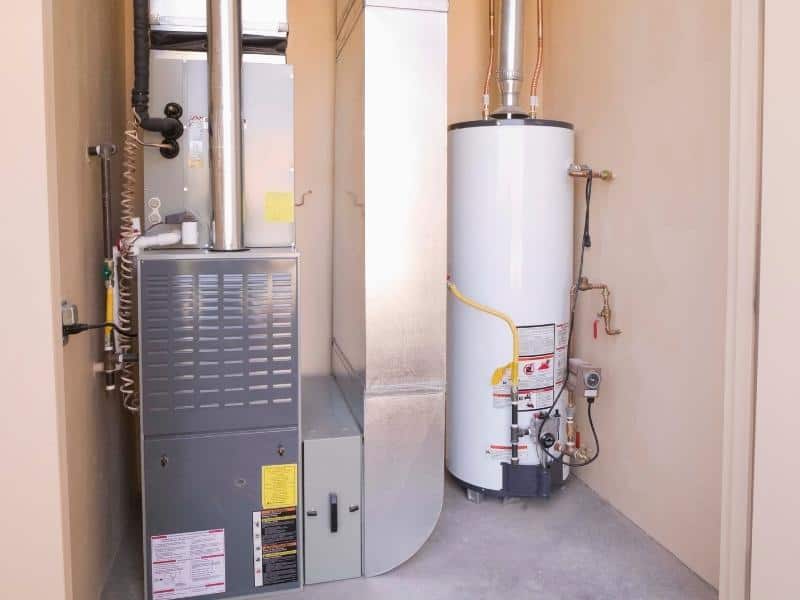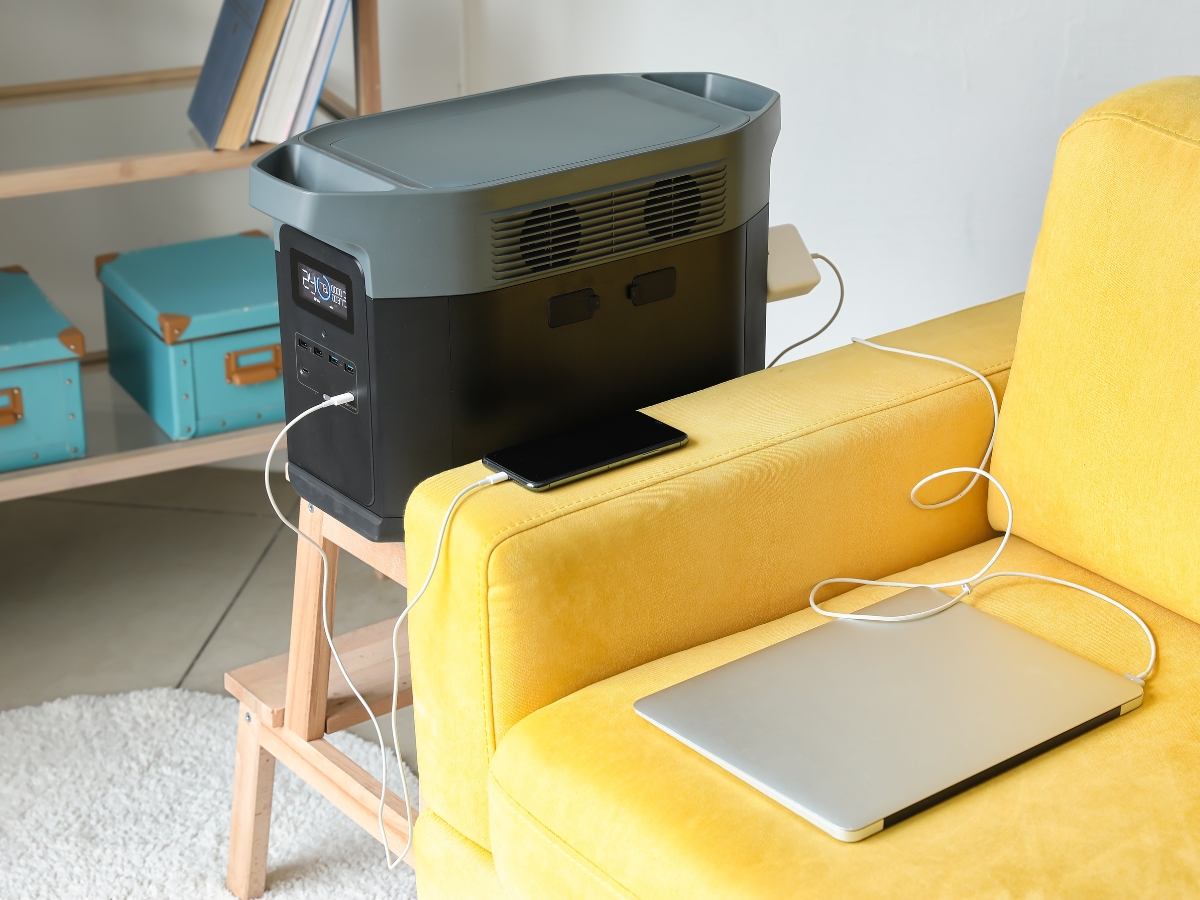Winter weather can easily take out your power. If you want to be prepared and stay warm, read on to learn what you need to know to select a generator for your needs. Here is what I’ll be covering.
- Can you use a furnace with a generator
- How to calculate how large of a generator you need
- Where to find the watts your appliances need
Sometimes you’ll need to switch from the grid when the power goes out this guide will help you pick the correct generator for your furnace.

Can a Generator Run a Furnace?
Yes, so long as you are careful to calculate how large of a generator you need. Gas and oil furnaces can run on less electricity than you would think. A fully electric furnace will take too much power for most portable generators.
If your home’s furnace turns out to be too power-intensive, you do have some heating options. For instance, most generators can run a space heater. While it may not heat the whole house, it can keep you warm until the power is restored.
Be sure you consider other things you may want to be powered. Basic things like lights and charging a phone aren’t very energy-intensive, but running a fridge or stove will need a much bigger generator.
How Big of a Generator do you Need?
This will depend entirely on your furnace, but you may need over 5000 watts. An electric furnace will likely not run on a portable generator.
Gas and oil heaters only need electricity to turn on and run the fan. This means they are much easier to run on a backup generator.
Furnaces generally have a wattage to start it and lower wattage to keep it running. For instance, the starting or surge watts for an oil furnace may be between 1000-2000 watts. The running watts may be 600-800 watts.
You will want a generator that can supply more than this number if you want to only run your furnace. If you want to run anything else at the same time, be sure to find the maximum watts and add these together.
You will want a larger generator than your calculations. This is to make sure any unexpected spikes in power needs don’t overwhelm your generator and leave you in the cold.
For a gas or oil furnace, look for a minimum of 3,500 watts if you want to power only your furnace. 5,000 watts is a better choice if you want to run other appliances including lights or a stove.
The minimum for an electric furnace is 10,000 watts. Electric furnaces have a much higher load, so you may need to go higher. If you have a larger home and a larger heater, aim for over this number. 13,000 watts and up can run more appliances.
Understanding Watts
Part of deciding how large of a generator you need is determining how many watts you need to generate.
The watt rating shows how much power the generator can supply at once. A larger number means the generator can provide more power.
Many units provide 5000 watts. This should be able to run most appliances but always double-check.
Understanding Generator Size
Generators are typically advertised by their wattage. They can be anywhere from 1000 watts to over 10,000 depending on the unit. Portable units typically generate fewer watts than the standby type.
Generators can run off of gasoline, propane, solar, or other options. Solar tends to be the most expensive since they include the panels and the batteries for storing the power.
Generators that produce more watts are generally more expensive. You also need to figure out the cost of fuel and how long the generator can run at a time when deciding on a model.
Portable Generator
Portable generators are easier to use since they are plug-and-play. They can be used with an extension cord and only require a safe place to leave them while they run.
Be sure you never run any generator that burns fuel inside. Make sure you have a long extension cord and leave the generator outside where it is safe.
Standby generators need to be installed but they require no effort from you to use them. They typically turn on automatically when the power goes out.
No matter what generator you use, make sure you have fuel for it and a plan in case you can’t access it easily in a disaster.
How to Calculate the Watts of Your Furnace
You can figure out the watts from the manual. The manufacturer may have the information as well if you know your model. Many furnaces will have their wattage listed right on the unit. It may be in the back, which can make finding the information difficult.
The other appliances you may want to run should also have their surge and running watts listed somewhere. Do not rely on a generalization for wattage.
Older appliances or those that have gone some time without maintenance may use more power than is listed.
This is why you always want to give some wiggle room. This will help accommodate the actual power usage. It will also give you some extra power if you want to run lights or charge devices.
If you will be running any form of a medical device on your generator as well, please opt for a larger generator. This includes cooling for medications like insulin.
How Can You Calculate the Exact Watts
If you want to figure out the exact watts your appliances use, there are a few options.
One option is a wattmeter that plugs into the outlet. This device is placed in the wall outlet and then you can plug any appliance into it. It will show how many watts the appliance is using.
These can be used for nearly anything, but be sure that they won’t be overloaded. Some are meant for consumer electronics, not major appliances.
You can also hire an electrician. They will have the experience and tools to determine your needs.
An electrician can also wire your home so you can use a generator by simply using the wall plugs in your home.
Safety Tips
If you want to use a generator, it is best to make sure it is inspected and serviced regularly. Since generators can produce carbon monoxide, you will need to position it outside or in a ventilated area far from people and pets.
You will also need an extension cord to use it. Make sure it is rated to handle the load. Some cheap extension cords may burn out or cause a fire.
It is generally best to have a professional place for a generator. They can also teach you how to use it safely.




